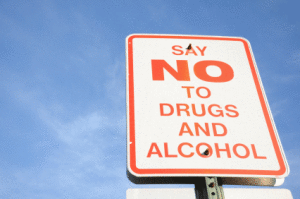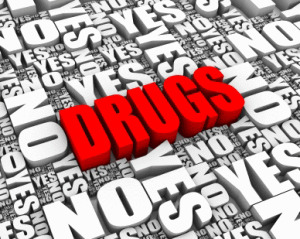 Speaking to your adolescent about drugs, second to the “sex talk,” is likely the scariest and sometimes the most awkward conversation in most parent’s mind, and therefore is usually avoided and ignored. Unfortunately, most parents decide to start the conversation when they already suspect that their teenager had been exposed to or is using drugs. This situation makes it a much more awkward, heated, and stressful discussion.
Speaking to your adolescent about drugs, second to the “sex talk,” is likely the scariest and sometimes the most awkward conversation in most parent’s mind, and therefore is usually avoided and ignored. Unfortunately, most parents decide to start the conversation when they already suspect that their teenager had been exposed to or is using drugs. This situation makes it a much more awkward, heated, and stressful discussion.
Having said all the above, most of you may skip reading the rest of this article thinking that your teen would never do drugs and that you don’t have to worry about this conversation. We urge you to read the statistics below, followed by techniques and recommendations on how to speak to your preteen or teenager about drugs. Please feel free to refer at-risk families to this article as well. This is a topic that every parent needs to be familiar with and in this section, we will try to help you navigate the first step. Of course, you can always call our office and make an appointment if more help is needed.
Before we proceed on how to start the “dreaded conversation” let’s discuss some facts:
- According to the Monitoring the Future study (2008), an NIH funded study, 72% of adolescents drink, 55% have gotten drunk, 47% have tried an illicit drug, and 25% have tried an illicit drug, other than marijuana, by the time they reach senior year in high school.
- One in four Americans, who begin using any addictive substance before age 18, have addiction problems later in life, compared with one in 25 Americans who started using at age 21 or older. Delaying the use of addictive substances for as long as possible should be a high priority for parents.
- The Partnership for a Drug-Free America’s annual “Partnership Attitude Tracking Study,” the largest survey on drug-related attitudes in the United States, sampled the opinions of approximately nine thousand youngsters aged nine to eighteen. Three-quarters of the fourth-graders said that they wanted more information about drugs from their parents. Hint: 4th grade may be a good age to start the conversation.
- Research shows that parents are central to preventing teen drug use. In fact, kids themselves say that losing their parents’ trust and respect are the most important reasons not to use drugs. As a parent, your actions matter. When you suspect or know, that your child has been drinking or using drugs, take action to stop it as soon as you can. It may be the most important step you ever take.
- According to the 1998 survey, the stronger and more frequent the antidrug messages at home, the less likely a child is to become a user. Only 26 percent of adolescents who said their parents had taught them “a lot” about the dangers of drugs had smoked marijuana. But among youngsters who claimed to have learned “a little” or “nothing” from their families, the rates of pot use were progressively higher: 33 percent and 45 percent, respectively. That pattern remained consistent for other drugs, too. Overall, boys and girls whose parents ignored the issue were about two times more likely to use drugs than teens who learned “a lot” at home.

- Individual negative risk factors include male gender, school failure, ADHD, learning disability, and other mental disorders such as anxiety and depression. Too many of our adolescents are self-medicating their anxiety and mood disorders with marijuana!
- Negative family risk factors include genetic risks, a family member who is abusing alcohol/drugs, parent-child conflict, permissive or authoritarian parenting style, and divorce.
- Substance using peers is also considered a strong community risk factor for drug use.
- Individual protective factors include high self-esteem, emotional well-being, resilient temperament, and school achievement.
- Family protective factors include frequent communication about alcohol and drug use, good parental modeling, eating meals together regularly as a family and involvement in your teenager’s activities.
Sign and symptoms of substance abuse can be very nonspecific, but here are some potential clues:
- Declining school performance.
- Change in dress and friends.
- Sudden mood swings, either depression or euphoria.
- Diluted or missing alcohol from parent’s home supply.
- Stealing, lying, or missing money.
- Increase in borrowing money
- Use of incense, room deodorant or perfume to hide smoke or chemical odors
- Increased secrecy about possessions or activities
- Evidence of drug paraphernalia, such as pipes, rolling papers
- New use of mouthwash or breath mints to cover up the smell of alcohol
There is one more step before you start the conversation with your child; it is very important that you talk to your spouse first. As parents you need to have a strategy and some “ground rules” that you both agree on. It is crucial for both parents to be on the same page before talking to your teenager.
Here are the important topics that need to be addressed:
Leave no doubt as to where you stand: “You are not to use any drug, including tobacco or alcohol, under any circumstances.” Then explain why:
- Because we love you.
- Because drugs are dangerous, and we don’t want to see you harm yourself.
- Because it is against the law.
As when setting any limit, clearly spell out the consequences for defying the rules: What will the punishment be and how it will be implemented? Make sure the new rules and consequences are reasonable and enforceable — such as a new, earlier curfew, no cell phone or computer privileges for a period of time, or less time hanging out with friends. You may want to get them involved in new or other activities that will keep them busy and help them meet new people.
Don’t hesitate to aim for the emotional jugular: Remind your teen that you would be deeply disappointed in his behavior if he were to disobey you on this matter. Research shows that when a child is deciding whether or not to indulge, a key consideration is, “What will my parents think?”
When discussing the dangers of drugs, emphasize the immediate consequences: Keep in mind the developmental status of your child. Younger teens tend to think mainly in terms of today, tomorrow and the next day. It’s not until much later in adolescence that teens begin to contemplate how their actions could impact their lives down the line. Teenagers are also still at a stage of thinking that they are invincible. Therefore, warnings that cigarette smokers are more than ten times as likely to die of lung cancer than nonsmokers are probably going to elicit little more than a shrug from a thirteen-year-old, or a twenty-year-old, for that matter.Instead, stress how smoking tobacco causes bad breath, hoarseness and a hacking cough, stains teeth yellow, impairs athletic performance, and in general makes other people not want to be around the smoker. In an American Cancer Society survey, eight in ten boys and seven in ten girls aged twelve to seventeen said they wouldn’t date someone who smoked.
Remind your teenager that smoking, drinking and drugging aren’t just harmful, they’re expensive: A youngster with a pack-a-day cigarette habit sees close to a thousand dollars a year go up in smoke. Surely your son or daughter could find better ways to spend all that money, whether it’s buying CDs and clothing or saving up for a car and college.
Appeal to an adolescent’s natural independent streak by praising his determination to avoid using drugs: “I admire the way you’ve stuck to your principles and refused to use drugs. It takes courage to not always go along with the crowd, and I’m proud of you.”
Explain to your child that once people start using drugs, they may not be able to stop: Addiction is poorly understood, by both substance abusers themselves and those who care about them. The young person with an addiction tells himself and everyone around him, that he can quit whenever he wants. But with prolonged use, the addictive substance triggers long-lasting changes in the chemical composition of the brain. At that point professional treatment is required to cure him of his compulsive behavior. Even then, many tobacco users, alcoholics and drug abusers will relapse and revert to their old ways.
Give them the words to avoid temptation. The peer pressure to try drugs is no less intense than the sexual pressure that so many adolescents face. As with any situation that could conceivably lead to trouble, we need to prepare our kids to refuse offers of alcohol and other drugs—preferably without alienating their peers, although sometimes that isn’t possible. “Just say no?” It’s a start, but few teens bent on enticing a peer to try drugs will let the matter rest there. In fact, substance abusers tend to view converting the “straight” kid as an irresistible challenge, if not their civic duty, and they can be exasperatingly persistent:
“C’mon, dude, you’ll love the buzz from this stuff! It’s kickin’.”
Role-play this scene with your youngster. The repertoire of possible replies includes:
- A firm but friendly “No thanks!” There’s no need for self-righteousness, along the lines of “Getting drunk? That’s for losers.” Let’s encourage teens not to label other people as good or bad, only their behavior. Using drugs is wrong, but that doesn’t necessarily make the drug abuser a bad person.
- Change the subject. “No thanks. Hey, what did you think of that test yesterday in social studies?”
- Suggest a change of plans. “I was hoping to get you guys to shoot some hoops down at the school. How about it?”
- Say no repeatedly:
“Wanna party with us? This weed rocks!”
“No thanks.”
“Aw, c’mon, man! It’s killer stuff!”
“Sorry, not interested.”
“Not even one toke?”
“Not even one.” - Teach your child respect for her body. “No thanks, I don’t drink. Besides, the girls’ swim team has a meet tomorrow, and I need to be in top shape.”
- Then there’s always this standby: “My parents would kill me if they found out that I got high, and they always manage to find out!”
Now that you have educated yourself about how to talk to your teen, all you need to do is sit him/her down and just start talking. You can go directly to the topic at hand or during a random conversation about friends or while watching a show on TV, just steer the subject to drugs and there you go! Do not fear that introducing the topic of drugs will put ideas into your children’s heads to use drugs. It will not do this any more than talking about traffic safety might make them want to jump in front of a car. You’re letting them know about potential dangers in their environment so that when they’re confronted with them, they’ll know what to do and they will know you care. If you hear something you don’t like (perhaps a friend smokes marijuana or your teen confesses to trying beer at a party), it is important not to react in any way that cuts off further discussion. If he seems defensive or assures you that he doesn’t know anyone who uses drugs, ask the question in a different manner. For example, ask him why he thinks people use drugs and carry on from there.
Tell yourself that you won’t “lose it” with your child. Be sure to have the conversation when all of you are calm and have plenty of time. Your feelings may range from anger to guilt, or you may feel that you have “failed” because your teen is using drugs. This isn’t true. This isn’t an easy task. By staying involved, you can help them stop using drugs and make choices that will make a positive difference in their lives. Anger and hostility won’t get you anywhere in this conversation. Stay as calm as possible. Remember, you are the parent and you are in charge. Be kind, simple, and direct in your statements to your child. Above all, remember to tell your child that you love him or her! The conversation will not be perfect – no conversation ever is. Know that you are doing the right thing for your child. That’s what matters most!
Parents are sometimes afraid that they will push their children away by talking to them about drug use. You may be worried that your child will get in trouble with the law and that it may affect his or her ability to qualify for scholarships or get a job. But teens who make a choice — one or more times — to use drugs or alcohol are at a crossroads and need your help. Overcoming your own fears is an important step in getting help for your child.
Be prepared for your teen to deny using drugs. Don’t expect them to admit they have a problem. Your child will probably get angry and might try to change the subject. Maybe you’ll be confronted with questions about what you did as a teenager. If you are asked, experts agree that it is best to be honest. Answering deceptively can cause you to lose credibility with your teen if they ever find out that you’ve lied to them.
Here are some final tips to keep in mind when you talk to your child:
- Tell your son or daughter that you LOVE him/her, and you are worried that he/she might be using drugs or alcohol;
- Let them know that you KNOW that drugs may seem like the thing to do, but doing drugs can have serious consequences;
- Tell them it makes you FEEL worried and concerned about them when they do drugs;
- Remember you are there to LISTEN to them;
- Encourage them to be a part of the solution;
- Tell your teen what you WILL do to help them.
- KNOW that you will have this discussion many, many times. Talking to your teens about drugs and alcohol is not a one-time event.
Adapted directly from the American Academy of Pediatrics (www.healthychildren.org), and www.antidrug.com created by the National Youth Anti-Drug Media Campaign.
